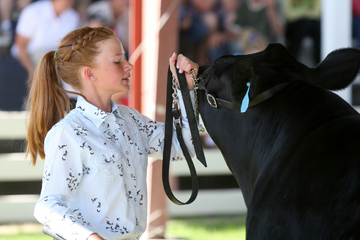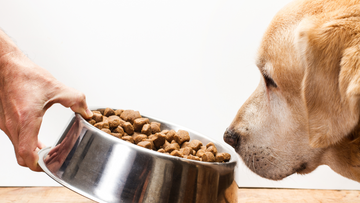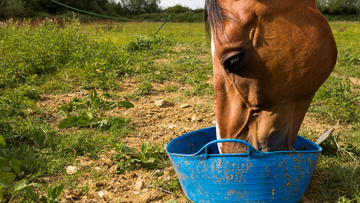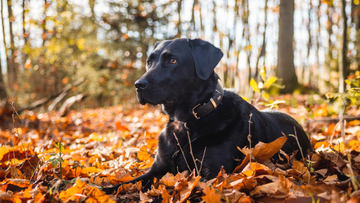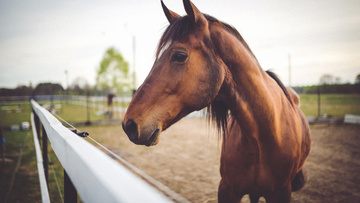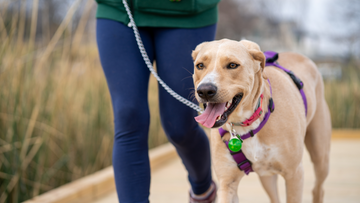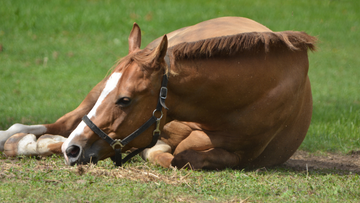Dogs are known for eating things when they are not supposed to. This is especially true for puppies. Many dogs have a sweet tooth and enjoy the taste of chocolate, but the candy is toxic to both dogs and cats. Chocolate is made from the roasted seeds of cocoa plants, and contains a substance called theobromine along with small amounts of caffeine; both toxic to pets. The risk of your dog becoming sick from ingesting chocolate depends on the type and amount of chocolate consumed and the weight of the dog. The concentrations of these toxic substances vary among the different types of chocolates.

Here are a few types of chocolate listed in order of theobromine content:
- Cocoa powder (most toxic)
- Unsweetened baker’s chocolate
- Semisweet chocolate
- Dark chocolate
- Milk chocolate.
- For milk chocolate
For milk chocolate, any ingestion of more than 0.5 ounces per pound of body weight may put dogs at risk for chocolate poisoning. Ingestion's of more than 0.13 ounces per pound of dark or semi-sweet chocolate may cause poisoning. However, almost all ingestion's of baker’s chocolate can result in poisoning and are considered emergencies.
Symptoms:
- Vomiting
- Diarrhea
- Increased body temperature
- Increased heart rate
- Low blood pressure
- Seizures
- Rapid breathing
Signs of chocolate poisoning are often delayed for up to eight hours following ingestion. If you suspect your dog has eaten chocolate, don’t wait for symptoms, see a veterinary immediately. It’s generally recommended that the owner make the dog throw up as soon as possible. Chocolate isn’t absorbed very quickly. Activated charcoal may be administered to help prevent additional absorption of the theobromine into the dog’s system. Seizure, heat irregularities, vomiting, and diarrhea are each specifically treated with appropriate medications and any signs of shock are addressed with fluid therapy.
In other words the best way to deal with chocolate toxicity is to prevent it from happening. Be sure to keep your chocolate locked up or up high where your dog can't get it. If it is in a low cabinet be sure to get a lock or baby security latches to prevent your dog from getting into the cabinet and getting the chocolate. Dogs can be ingenious when it comes to food. Do not ever leave chocolate lying around. You can also contact your local poison control center for advice.







